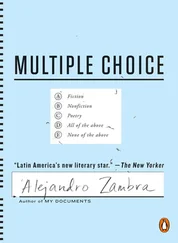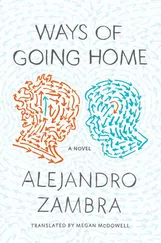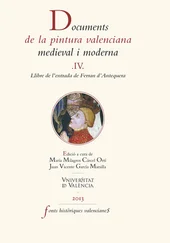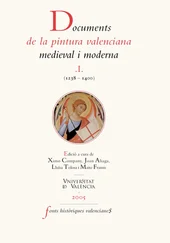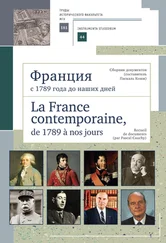Sometimes Lucas was silent, calm, a bit absent: he seemed to be immersed in incommunicable thoughts. But other times he never stopped asking questions, and although, at nine years old, he was starting to resemble a normal child, his father wasn’t satisfied and didn’t know how to interact with him. Daniel was obviously a normal man, because he had married, had a child, endured several years of family life, and then, as all normal men do, gotten divorced. It was also normal for him to run late with the alimony payments he owed his ex-wife — almost always out of pure distraction, because he didn’t have money problems.
Daniel lived on the eleventh floor of a building where pets were not allowed, but Pedra was discreet: she spent her hours licking her shiny black paws and looking down at the street from the slightly grimy balcony. She didn’t need anything other than her bowl of water and a handful of food, which she ate unhurriedly after looking at the dish for a few minutes, as if deciding whether it was really worth the trouble to eat. Daniel had never liked cats; he’d had a few as a child, but they had all really belonged to his brothers. Even so, he was willing to make the effort — a cat is good company, he thought, visualizing an abstract image of a lonely man and his cat. He wasn’t exactly alone, himself, or he was, but he didn’t think that solitude was a problem. He’d had too much company during the years of his marriage: that’s why he’d left his wife, he thought, out of a need for silence. “I separated from my wife for reasons of silence,” Daniel would say, flirtatiously, if someone were to ask him why it had ended, but no one asked him about that anymore, and in any case, that answer wouldn’t be true, or false: he needed silence, but he’d also wanted to save himself, was trying to save himself — or maybe to protect himself — from a life he had never wished for.
Or maybe he had wanted, once, to be a father, but it had been a naive, stupid desire. The years they’d lived together (“as a family”), he’d had to be too much of a father. Everything had meaning, every gesture, every sentence held some conclusion or lesson, including his silence, of course — that too. One had to be so cautious with words, so endlessly careful, so sadly pedagogical. He could be a better father from a distance, he had thought, and there was no sense of defeat lurking behind that conclusion.
His plan was to tell the boy that the kittens had died at birth. He was going to drown them without thinking about it much, the way he’d heard it was done: throw them into the toilet, flush, and immediately forget about that bitter secondary scene. But luck was not on his side and they were born on a day when the boy was at his house.
“We can’t keep them, Lucas,” he told the boy that afternoon.
“Of course we can,” replied Lucas. Daniel looked at his son: it occurred to him that they looked alike, or they would in the future — their slightly cleft chins, their curly black hair. He helped the boy put on a back brace the doctor had prescribed for his scoliosis. Lucas also wore braces on his teeth, and a pair of glasses that made his dark eyes, and even his eyelashes, look bigger.
“Do you have homework?” Daniel asked.
“Yes.”
“Do you want to do it?”
“No.”
What they did, instead, was make phone calls, offering the kittens up for adoption. And then they drafted an e-mail that Daniel sent to all his contacts. When he dropped Lucas off at the boy’s true house, he got caught up in a harsh argument with his ex-wife, in which he tried to convince her that she was the one who should take on the responsibility of the kittens.
***
“Sometimes I forget what you’re like,” Maru said to him.
“And what am I like?”
Maru fell silent.
During the following months, the cats opened their eyes and started to drag themselves laboriously across the living room. There were five of them: two black, two gray, and one that was almost entirely white. To avoid repeating the mistake of Pedro/Pedra, Lucas decided not to name them. Now that there were kittens at his father’s house, the boy wanted to be there all the time. For Daniel it was a victory, but an uncomfortable one.
One Thursday, suddenly, at seven in the evening, Lucas showed up at Daniel’s without any advance notice. Five minutes later Maru appeared, panting after climbing the eleven flights of stairs up to his apartment. She hated elevators, hated that Daniel lived on the eleventh floor — and not only because she was concerned for the boy’s safety, or because of her own phobia, but also because it reminded her, insistently, of that far-off night when Daniel had promised her that there would be no elevators in their life together, that they would always live, so to speak, with their feet on the ground.
Maru apologized for the visit.
“We were in the neighborhood,” she said, which was highly unlikely, because they lived on the other side of the city.
“For a second I thought the kid came alone,” said Daniel.
“What do you mean, alone?”
“Alone.”
“Are you crazy?”
“No.”
Daniel toasted some bread and made coffee, which they drank in silence while the boy assigned nationalities to the cats: the white or almost-white cat was Argentine, the black cats were Brazilian, and the gray cats were Chilean.
Thanks to the group e-mail, Daniel got back in contact with a former classmate from college, a woman who came over one night on the pretense of adopting a cat. After the first pisco and Coke they went to bed, and it was good, or more or less good, as she said the next morning.
“I mean, I liked it,” she added lightly, but to Daniel it seemed like an aggressive remark. “What happened to you is really strange,” she said next; she had the habit of changing the subject every time she lit a cigarette. “It’s really strange what happened to you — it’s more common for male cats to be mistaken for female, and not the other way around.”
“What?”
“Just, it’s normal to not see their cocks well. But you saw a cock on Pedra where there wasn’t one,” said the woman, who hardly had time to laugh at her joke before she told another one: “She’s called Pedra and you’re called padre.”
Daniel laughed late, irritated.
“Why do you say ‘cock’?” he asked her.
“What, I can’t say that?”
“Women don’t say cock.”
“But what you put in me last night is called a cock,” she said. “And what Pedra doesn’t have is called a cock.”
To Daniel it seemed like phony indecency. Before leaving, the woman assured him that she would come by later for the cat, so that, in a fit of optimism, Daniel thought that the scene from the night before would repeat itself over and over: every evening she would come for a cat, sleep with him, and leave at dawn. But it wasn’t like that, not at all. She never came back, didn’t call, didn’t write.
Someone spread the word that there were cats in the building, so Daniel had to bribe the concierges with a bottle of pisco and a few opportune boxes — as a joke — of Gato Negro wine. Then he needed several whiskeys to neutralize the downstairs neighbors, a Catalan playwright and his wife.
“We like the country, and the neighborhood is very clean,” they said almost in unison, as if they were competing in a contest that tested their matrimonial harmony. Pedra sniffed at the guests, and the little cats dozed in a pile inside a shoe box. The couple had come to Chile to be near their daughter, who’d just had a baby. The woman spent a lot of time with the granddaughter, and the man tended to stay at home alone — he was in need of a little solitude and inspiration, he explained.
Solitude and inspiration, thought Daniel later on, lying in bed. He had solitude and he’d never needed inspiration, but the playwright’s words made him think that maybe that was precisely what he was missing: inspiration. His job, however, was very simple, almost mechanical: a lawyer doesn’t need inspiration, but rather the patience to tolerate his superiors, and doubtless also intelligence and subtlety to saw the floor out from under them, and maybe also imagination, but just practical imagination, he told himself, as though definitively resolving the issue.
Читать дальше

